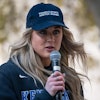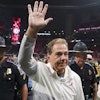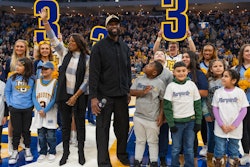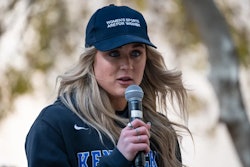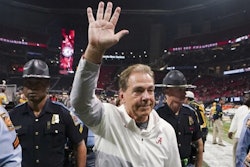Over the past few years, it has become more and more common for lesbian and gay coaches to include the names of spouses and partners in their bios. Dr. Pat Griffin, professor emerita of education at University of Massachusetts Amherst and longtime advocate for equality in sports, describes it as a sea change, noting that today’s athletes and coaches are coming out into a much more supportive environment than existed 20 years ago.
When Griffin authored her 1998 book Strong Women, Deep Closets: Lesbians and Homophobia in Sport, her interview subjects were anonymous. Today, younger generations have grown up exposed to the LGBTQ rights movement and marriage equality.
“When they have that kind of growing up experience, it would be unacceptable to think about being closeted as a coach,” says Griffin, who began her career in higher education as a coach. “That’s part of a larger cultural change that has enabled many, particularly women coaches, to be openly lesbian.”
But as much as things have changed, people in more conservative parts of the country remain hesitant to come out. States that don’t have laws protecting against LGBTQ discrimination in the workplace make it difficult for coaches to openly identify, says Griffin, as does the culture created by administration.
“There’s still a dire amount of work to be done in athletics in not just talking the talk, but actually taking action,” says Shane Windmeyer, founder and executive director of Campus Pride.
Making big decisions
Curt Miller, head coach of the WNBA’s Connecticut Sun, spent 24 years coaching at the college level. When he was an assistant coach, he was cautious about discussing his personal life, but when he became the head women’s basketball coach at Bowling Green University in 2001, he began bringing his then-partner to team and university functions. An incident in his first year as a head coach made him decide he would be fully authentic.

